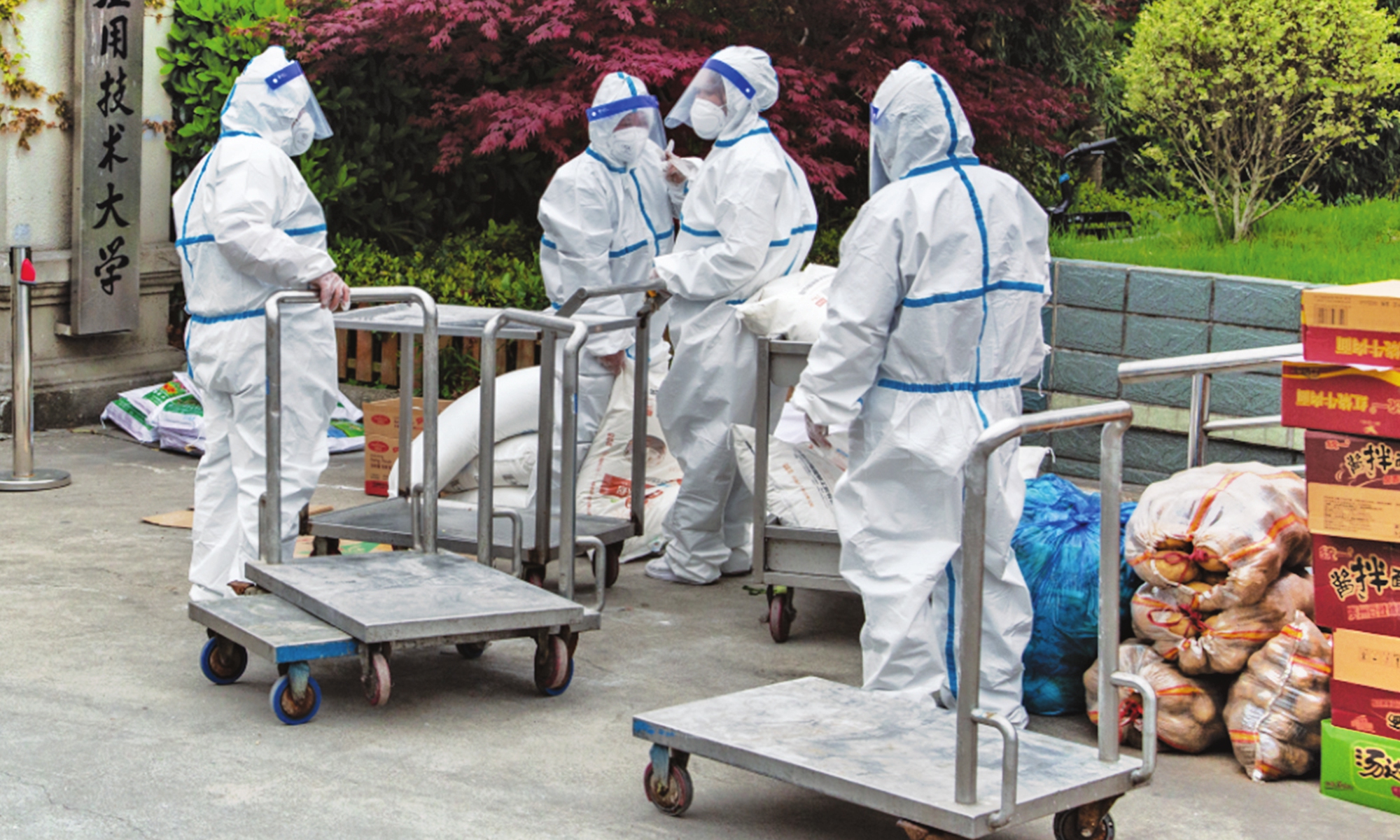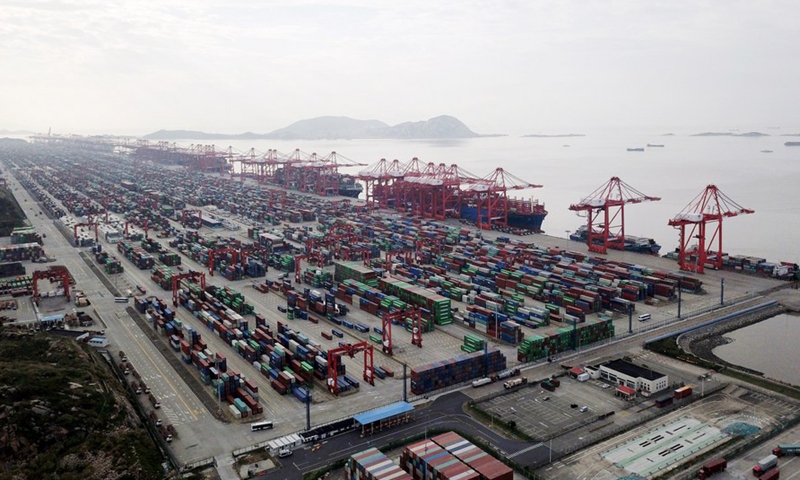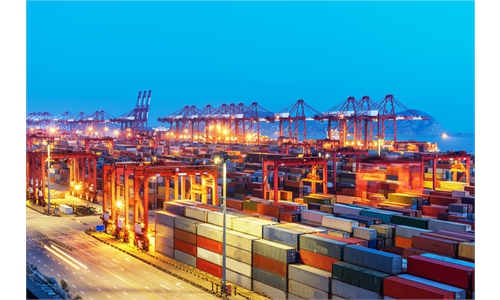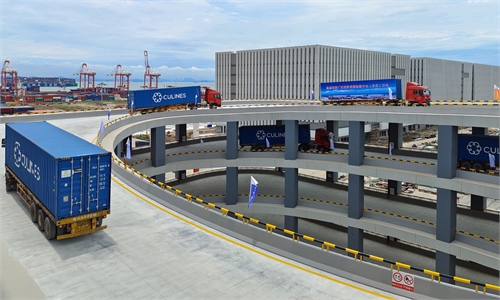China’s State Council urges to remove barriers to ensure smooth logistics
State Council urges to remove barriers to freight transportation

Epidemic prevention workers transport supplies for the Shanghai Institute of Technology before lockdown. Photo: Wu Chuanhua/Global Times

Aerial photo taken on Nov 3, 2021 shows a container dock of Yangshan Port in east China's Shanghai.Photo:Xinhua
The State Council, China's cabinet, on Monday asked local governments to "make every effort" to ensure the smooth movement of freight through the logistics system amid epidemic controls, a clear response to regional actions that have caused growing disruptions to supply chains and trade flows.
In an effort to secure supply chains while pursuing the dynamic zero-COVID policy, a notice from the State Council said that any shutdowns of highway services, port terminals, railway stations or airports without authorization are strictly forbidden, and stopping crew changes on international shipping services without authorization is disallowed.
Later on Monday, Chinese Premier Li Keqiang asked for research on "greater efforts" to ensure the orderly operation of key transportation hubs such as ports, maintain smooth international and domestic logistics, and maintain the stability of industrial supply chains.
Some local governments have adopted independent epidemic control measures including temporary suspension of intercity highway services to limit risks of the epidemic spreading, in the face of rising COVID-19 cases in Shanghai and the neighboring regions.
While such measures were made in a bid to curb the spreading, they have caused serious chain effects that potentially disrupt logistics and the supply of crucial living materials.
Some parts of provinces and cities across the country stretching from East China's Jiangsu Province to Northeast China's Liaoning Province have implemented anti-virus measures on highways, with the entrances or exits of some expressway toll stations being shut down.
Impacted by supply chain disruptions, truck drivers were receiving less orders in the past week, which dropped by 7.6 percent year-on-year. In the Yangtze River Delta region with Shanghai as the center, the number dropped by about 12 percent, according to media reports.
In Monday's notice, the State Council highlighted that any shutdown of highways, ordinary roads, or setting up waterway barriers should be reported to the provincial-level joint prevention and control mechanism for approval before implementation.
For the closure of airports involving inter-provincial flights or international flights, local governments shall report this to the relevant departments of the State Council for approval as required.
And, it is required to announce these shutdowns to the public in advance, and take active steps to end them as soon as possible, the notice said.
Several industry insiders told the Global Times on Monday that they applauded these measures as they sought to beef up foreign trade flows.
Despite the fluid situation, industry insiders are confident they can ensure the delivery of goods ranging from home appliances to face masks to markets including Europe and the US.
There are disruptions to the supply chain, because some parts are made in or near Shanghai, where epidemic controls are strict. But companies can easily find alternative sources in the Pearl River Delta, thanks to the complete supply chain in the region, Hong Shibin, deputy executive director of the marketing committee of the China Household Electrical Appliances Association, who also runs a household appliance business, told the Global Times on Monday.
Local factories for home appliances are generally working at full capacity.
Moreover, some local producers and traders are transferring their export orders from Shanghai and the Ningbo port to ports in Guangdong to avoid disruptions, according to Hong.
The supply chain hurdles are mostly in the Yangtze River Delta, where Shanghai is the center due to the epidemic flare-ups. The situation is relatively easier in the Pearl River Delta where the epidemic has been curbed, industry insiders said, with a limited impact on foreign trade.
Foreign trade flows in the port of Guangzhou, the head of the Pearl River Delta, remained strong in the first quarter with double-digit growth in terms container volume, according to the Guangzhou port.
A Guangzhou-based mask producer surnamed Cao told the Global Times on Monday that foreign orders remain strong, especially from some European countries and the US, where they have consistent business partners.
A statement by the Guangzhou port obtained by the Global Times on Monday said that it had formed fast channels for goods deliveries.
The port has added six container shipping routes, taking the total for foreign trade to 147 and strengthening shipping capacity to Southeast Asia while providing solid import and export logistics channels for companies in the Pearl River Delta.



